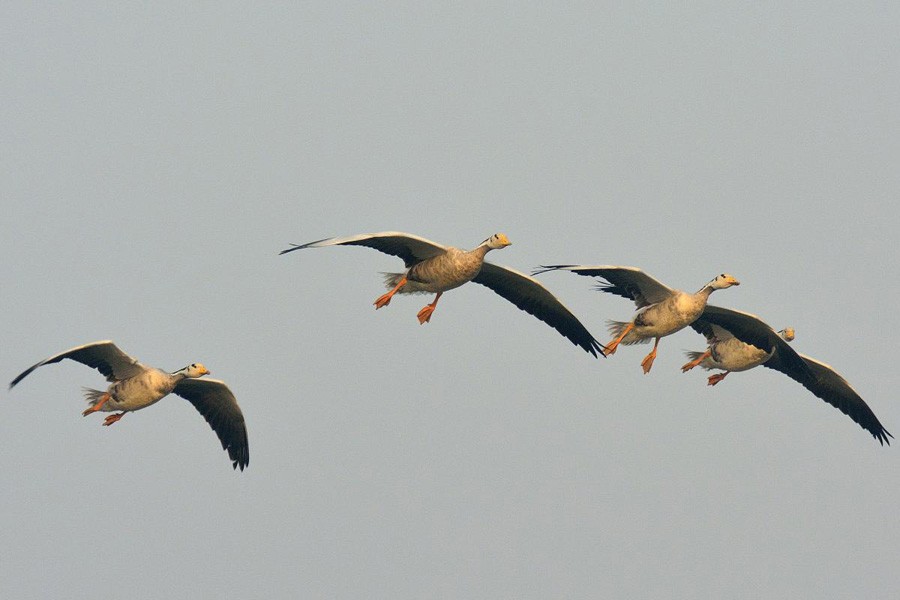Admittedly, a larger number of people are sensitised -and that too to a far greater extent -- than before about the hunting of guest birds. Yet there are bird catchers and sellers who give a damn to the law against bird hunting. The question of consciousness of the harm they cause to the natural chain of life and therefore the environment does not arise at all. They are simply incorrigible. Bird hunting cannot be a profession like fishing because it is seasonal and apart from some extra income it serves hardly any other purpose. Its long-term impact can be cataclysmic.
That bird hunting cannot be stopped is a collective failure of society. Unless there is a demand for the guest bird's meat -- often treated as a special dish, keeping the supply line open would not be possible. Few meat-eaters can admit conscientiously to themselves that they would refuse guest birds' meat if offered. Considered a delicacy among different types of meat, meeting a refusal from the most omnivorous of all animals is an impossible proposition.
If the consumer point dries up with no demand at all, the supply line too will automatically dry up. But this is too much to expect. So the attempt should be to reduce the immediate and collateral damage. The immediate damage is the killing of the birds and the collateral damage is its impact on the spots they visit yearly and the long-term effect it leaves on the environment. Some water bodies have been declared bird sanctuaries but there are still others where the birds arrive but not all of them can return to the far away chilly habitats they come from.
Environmental groups have been campaigning for long to raise awareness among people against bird hunting. It has worked wonder in areas where the young people could be convinced enough of the merit of saving the exotic flying guests. In some areas youths have formed brigades to work as sentinels. At least in a few villages where birds -not necessarily the guest birds but also the residential ones with demand for their meat -have found their shelter on large trees, the young people and even their elders have continued policing and driving away hunters.
However, in some outlying areas, this kind of vigilance is not possible. Birds netted, poisoned or otherwise caught in those remote places exchange a few hands of organised gangs before they are offered for sale sometimes clandestinely and other times openly in towns and cities. And they find ready customers. Sometimes members of the environmental groups, bird lovers or ornithologists catch the bird sellers red-handed but hardly are they meted out the punishment they deserve. The laxity in enforcement of the law is one of the reasons why the crime can continue unabated.
In such cases the birds taken away from the sellers are released in the open sky so that they can find their way to their spot of migration and join their flocks. But this year the bird catchers have developed a ghoulish practice. The practice is to pinch the eyes of the migratory birds with the sharp ends of feathers so that they become blind and cannot fly. The purpose is clear: even if the birds are rescued, they cannot be released in the open sky. In macabre practices, the devils among the human kind here simply excel.
A few rare birds have already fallen victim to this perversion at its most insidious. Now that this has come to the media, the need is to act fast for its deterrence or else the practice will get currency among bird hunters in areas still free from this cruelty. Anyone found resorting to the practice should be given exemplary punishment in order for it to act as a strong deterrent.


